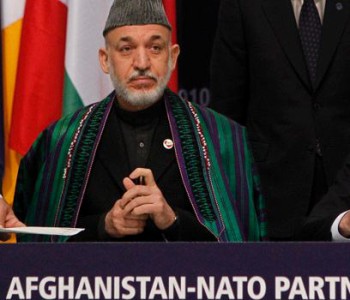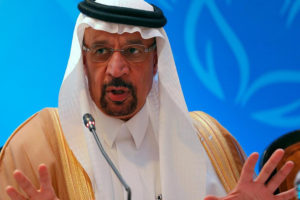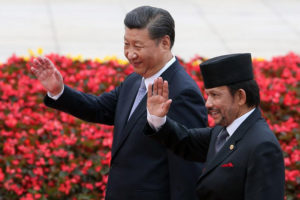
Nov 22 2010
NATO nations formally agreed Saturday to start turning over Afghanistan’s security to its military next year and give local forces full control by 2014. The US and its allies appeared to disagree on when NATO combat operations would end.
NATO Secretary-General Anders Fogh Rasmussen said he did not expect NATO troops to stay in the fight against the Taleban after 2014. “I don’t foresee ISAF troops in a combat role beyond 2014, provided of course that the security situation allows us to move into a more supportive role,” Fogh Rasmussen told reporters, using the acronym for the International Security Assistance Force that is led by NATO.
Rasmussen, President Barack Obama, Afghan President Hamid Karzai and leaders of the 28-nation alliance were meeting behind closed doors to discuss the alliance’s exit strategy from Afghanistan on the second day of Nato’s annual summit.
Later, a senior Obama administration official said the US had not committed to ending its combat mission in Afghanistan at the end of 2014. The official spoke on condition of anonymity in order to discuss internal administration discussions.
The US official said a decision on changing the US mission in Afghanistan is not imminent because it is still unclear what the security needs and resources will be as the 2014 transition proceeds. Each NATO member country will make an individual decision on when their combat mission will change, the official said.
US President Barack Obama also said it’s “hard to anticipate” the exact US role in Afghanistan beyond 2014. But he said US counterterror operations will go on until officials are confident Al-Qaeda is no longer operating.
The US view may reflect a reluctance to forecast when combat will end, in order not to give the Taleban a sense of hope for outlasting their adversary. It may also indicate less certainty by the US that Afghans will be able to take full control by 2014, and perhaps a greater eagerness among the Europeans to be done with a nine-year combat operation.
The Taleban said that NATO was heading for defeat in Afghanistan. “It has become clear that after nine years of occupation, the invaders are doomed toward the same fate as those that tread this path before them,” the group said in an emailed statement. “Their troop surges, their new strategies, their new generals, their new negotiations, and their new propaganda have been of no avail,” it added.
NATO officials stressed, however, that the alliance will maintain a military presence in Afghanistan long after it begins withdrawing troops.
They were also deciding how NATO will give advice, training and logistics help to Afghanistan’s military over the long term.
“The direction starting today is clear, toward Afghan leadership and Afghan ownership (of the war),” Rasmussen said in his opening remarks.
“We will agree here today on a long-term partnership between NATO and Afghanistan to endure beyond the end of our combat mission,” Fogh Rasmussen said. “If the enemies of Afghanistan have the idea that they can wait it out until we leave, they have the wrong idea. We will stay as long as it takes to finish our job.” Ivo Daalder, the US ambassador to NATO, said the 2014 goal and the end of NATO’s combat role in Afghanistan beyond that date “are not one and the same.” But many NATO nations have insisted they will remove all their troops by 2014, and British Foreign Secretary William Hague reiterated said his country will end its combat role in Afghanistan by 2015.
“Make no mistake about it, that is an absolute commitment and deadline for us,” the British news agency Press Association quoted him as saying.
He added: “This remains a phenomenal challenge. There is a huge amount of work to do in Afghanistan, and I wouldn’t want anyone to think we can relax in any way about Afghanistan.” The end date to hand Afghans control of security is three years beyond the time that Obama has said he will start withdrawing US troops, and the challenge is to avoid a rush to the exits as public opinion turns more sharply against the war and Karzai pushes for greater Afghan control.
Karzai’s office in Kabul said the president highlighted the importance of reducing civilian casualties, eliminating private security companies and issues surrounding the detention of prisoners.
He called on the NATO leaders to support an accelerated process for reconciling with the Taleban and win the trust of countries in the region so that they can foster the peace process.
Karzai’s office said the president also renewed his pledge to fight corruption and asked that there be a meeting on transition in November 2011 in Bonn, Germany.
Gen. David Petraeus, the top US and NATO commander in Afghanistan, was expected to make a closed-door presentation emphasizing that stepped-up military operations this year, with the addition of thousands more US combat troops, have made strides toward weakening the Taleban and eventually creating the conditions for peace negotiations.
But he also is believed to be concerned that the transition not turn into a departure before Afghanistan is stable.
Despite the optimistic statements about progress in the war, the Taleban have shown no sign of weakening under the intense military pressure. Allied deaths have reached record levels this year, and the guerrillas have expanded their activities into hitherto safe regions in the north and west of the country.
A senior Pakistani intelligence official said Saturday the US is seeking to expand the areas where American missiles can target Taleban and Al-Qaeda operatives but that Pakistan has refused the request because of domestic opposition to the strikes.
The US is increasingly relying on the missile strikes by remote-controlled drones flying over Pakistani territory to find and kill Islamist extremists that have free rein in the lawless areas along the border, where they plan attacks against American and NATO troops in Afghanistan Another major event is a meeting of NATO’s 28 leaders with Russian President Dmitry Medvedev.
NATO and Moscow are expected to sign agreements to expand the alliance’s supply routes to Afghanistan through Russia, and set up a new training program in Russia for counter-narcotics agents from Afghanistan and other Central Asian countries. They also are expected to agree on a program to provide training to Afghan helicopter crews.
Obama won NATO support to build a missile shield over Europe, an ambitious commitment to protect against Iranian attack while demonstrating the alliance’s continuing relevance.
Two key unanswered questions about the missile shield — will it work and can the Europeans afford it? — were put aside for the present in the interest of celebrating the agreement as a boost for NATO solidarity.






